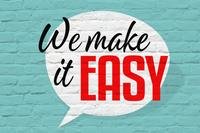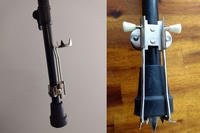Job interviews are high-pressure ordeals and can be extremely stressful. To make matters worse, you can blow them in a lot of ways. The folks at azcentral have come up with six of the most common ways interviews are ruined, and some of them might surprise you. Don't leave things to chance: Make sure you have everything on lockdown, and you are as prepared as you can possibly be.
6. Speaking Negatively About Your Current Boss or Co-Workers
You might leave work every single day absolutely loathing your boss or co-workers, but that isn't something you should communicate during a job interview. Ripping into the people in your current work environment displays a lack of professionalism and signals that your soft business skills need an overhaul.
Job interviews are as much a test of how well you fit with the company as they are a measure of your technical abilities. If you can't keep a lid on your frustrations, employers will think that you're a complainer and will negatively impact their work environment, no matter how justified your issues are. You're marketing yourself in person, and it's imperative that you come across as positive, motivated and focused.
If the interview steers toward your boss and co-workers and a negative response seems inevitable, think of explaining your side in the most sterile, neutral terms possible. If you can, leverage the opportunity to display your problem-solving and communication skills.
5. Acting Full of Yourself
When you're seated across from an interviewer, it's time to shine and talk yourself up. But that doesn't mean you can act arrogant. Rather than talk about how good you are -- relative to those around you -- or exaggerating your abilities, speak simply about your positive attributes and accomplishments. Find opportunities during the interview to mention why you're a good candidate, not how you're going to blow everyone out of the water.
Interviewers expect that each candidate will do their best to make themselves sound good, so a certain amount of self-hype is expected. But promoting yourself effectively is more art than science. Keep it simple: Answer questions, using examples if possible; keep a positive focus on your work sensibilities; and don't ramble.
4. Getting Buzzed or Drunk
If you believe it is acceptable to show up at a job interview drunk or even slightly buzzed, you should reevaluate your perspective on work ethic.
In all seriousness, it's common to use alcohol to curb anxiety when publicly performing, and job interviews should definitely be thought of as a type of performance. Don't use alcohol as a crutch; find other ways to deal with the jitters. There are no catch-all explanations for why someone might have anxiety or what the best cure is, but there will never be a time when alcohol is a good solution.
3. Using Your Cell Phone
Have you heard the one about the folks who were on a date, and one of them gets a call and answers it, then talks on the phone for a few minutes? This person would generally be considered rude, inattentive and a turnoff. The same goes for job interviews.
Unless it's an absolute emergency, you should never bring out your phone during an interview. Even if there's some type of downtime during the process, you should always appear focused and engaged. One of the strongest qualities a candidate can display is excitement for the industry and, more importantly, company. Spending time with your cell phone is like pulling out a big sign that says "DILLIGAF."
2. Arriving Late
The military expected you to be on time for everything, and you shouldn't treat the civilian world any differently. Sure, there are more variables in the working world, and a lot of companies frankly take a very laid-back approach to their process.
But showing up promptly is one of the easiest and best ways to tell others that you are a professional and can be relied on. Even a 10-minute delay might signal to your potential future employer that you aren't motivated enough or aren't taking the process seriously. No one likes having their time wasted, and that goes double for folks who are running an interview.
1. Lying About Work History and Experience
It can be tempting: A little fib here or there, and you might look more qualified for the position. Besides, you already have the experience and skills, so what's the harm? The fact is, a lot can go wrong with this tactic. While you should focus on coming across as highly qualified, don't give in to temptation. Employers will fact-check you, and if they catch you in any kind of lie, you will not be hired.
Think about it this way: You can't change facts, but you have control over how you present them. Your goal is to focus on the experiences and personal traits that will make you a valuable employee, and you don't have to lie to do that. If you only have two years of experience in the industry, don't say you have three; talk about how you made the most out of those two years.
Find the Right Veteran Job
Whether you want to polish your resume, find veteran job fairs in your area or connect with employers looking to hire veterans, Military.com can help. Subscribe to Military.com to have job postings, guides and advice, and more delivered directly to your inbox.











